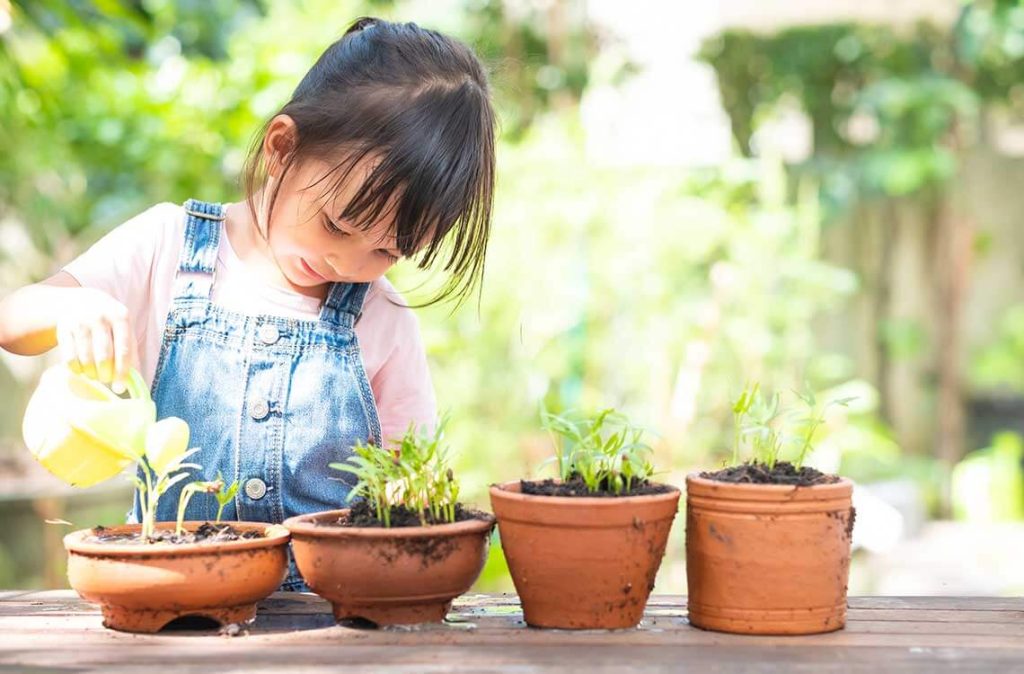Gardening has always been scientifically proven to benefit the mind and body. It can boost your mood, reduce stress, help fight disease, improve memory and help you foster relationships with other people. These benefits may apply to children as well, and show great promise in helping with neurodivergent (the term for people whose brains function differently in one or more ways than is considered standard) conditions like autism as well. In conjunction with World Autism Awareness Day, celebrated annually every April 2, let’s look at how gardening can greatly help your autistic child cope with their symptoms.
For those who don’t know, autism is a neurological disorder marked by difficulty in participating in social interactions and communicating verbally and non-verbally. Autism Spectrum Disorder (ASD) is the clinical definition for autism. Autistic individuals may also suffer from under or overstimulation and have repetitive habits or actions. There is currently no cure for autism but with the right treatment and techniques, autistic children can also lead happy, fulfilling lives.
One of the ways experts believe can greatly improve autistic symptoms is horticultural therapy. Read on to find out how exactly horticultural therapy can help autism and why you should incorporate it into your child’s life.
Benefits of Horticultural Therapy for Autistic Children
In layman terms, horticultural therapy is basically using gardening as a technique for helping with physical or psychological conditions, like autism. It has successfully helped those on the autism spectrum for years. Several studies have even proven the positive effects of gardening (and other outdoor activities) on autistic individuals such as increasing interactions with people, improving their ability to communicate, and helping them share their experiences. This study shows that gardening can improve emotional intelligence in autistic children.
Because autistic children may often struggle with verbalising their feelings, gardening motivates them to communicate more about what they see, smell and touch when dealing with plants, soil and gardening tools. Moreover, assuming gardening is calming for autistic children the same way it is for adults. As such, horticultural therapy can be instrumental in alleviating autistic episodes.
How to Introduce Gardening to Your Autistic Child
Keep It Simple
When dealing with any activity involving children, it’s best that we think in children’s proportions. This means instead of a backyard garden, start a windowsill nursery. And instead of a plot of land, opt to plant seeds in little paper cups filled with soil. You don’t want to overwhelm a small autistic child with the responsibility of starting and maintaining an adult-sized garden. Moreover, some families may live in apartments or condos—which means they may not have access to land for a garden. The paper-cup method in this case is the most ideal for getting your autistic kid started on their gardening journey. Alternatives include a terrarium or a store-bought small potted plant or seedling.
Slow and Steady
Depending on where your child lies on the autistic spectrum, they may not be open to the sensorial experience of gardening. Some autistic children who experience overstimulation from their surroundings may not enjoy certain textures—like soil, for instance. So, it’s important to determine beforehand that your child would benefit from the activity. However, if you introduce it to them slowly, they may eventually participate out of sheer curiosity. Despite what some may wrongly assume, autistic children are in fact exceptionally bright. Some have been known to memorise every species of insect. So even if your autistic child won’t take up gardening as a hobby or career, they may still develop a deep love of plants and end up as a botanist. Just be sure you’re willing to get your hands dirty as autistic children tend to follow by example.
Get Them a Starter Kit
Gardening tools can be great for autistic kids, in the same way that they enjoy sensory toys. You can get some cheap plastic gardening tools from many places these days. Even the toy ones are sturdy enough for some light tilling. If they do end up taking care of a small indoor plant, they’ll only be using a watering can. And if they just want to play with the tools irrespective of any gardening activity, this is perfectly okay too.
Sowing the Seeds of Curiosity
As previously mentioned, autistic kids are very bright. They will hyperfixate on whatever interesting things that may capture their attention. In this case, having a healthy preoccupation in things like plants and gardening can be a good coping mechanism. Gardening may just be the therapeutic pastime they need to help them adjust to their environment. Taking care of plants, tending to seedlings and watering flowers is as much a social activity as it is a meditative one. Your child can practice their communicative abilities when they describe their experience and sensations. Soil, sun and seed; it may just be what your autistic child needs to help them lead a better, more fulfilling life.
Disclaimer: The information provided in this article is for informational purposes only and should not be considered as medical advice from Motherhood. For any health-related concerns, it is advisable to consult with a qualified healthcare professional or medical practitioner.
For more insightful stories and fun recipes, stay tuned to Motherhood Story!
